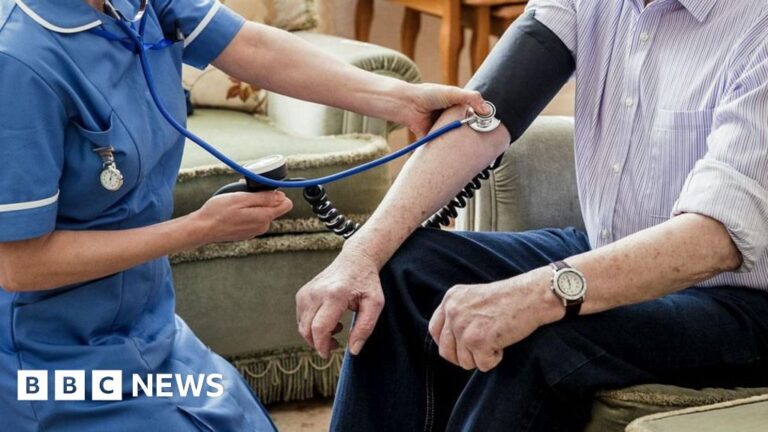Here is the plain text result without the HTML code:
Joey Farrell is one of an estimated 500,000 people in the UK using anabolic steroids.
He had heart failure at 30 and believes taking steroids will reduce his life by 20 years – but Joey Farrell continues using muscle-building drugs for “the sake of his career”.
The professional bodybuilder knows the health warnings and harmful long-term effects, and while he accepts he sounds “contradictory”, he warned others not to follow his example.
A professor who specialises in steroid abuse has called for regional centres of excellence to tackle what he says is becoming a growing public health concern.
There is no official data on how many people in the UK take anabolic steroids, but recent estimates suggest about 500,000.
Joey first took steroids aged 20 after getting into bodybuilding, and started injecting them a year later.
But in January last year, the 31-year-old said doctors were “dumbfounded” to find out he had heart failure after some blood tests, with many GPs not specialists in steroid use.
The results were really, really bad, said Joey. My troponin levels, which is a heart attack marker, were extremely high.
After a heart scan, Joey said clinicians diagnosed him with steroid-induced dilated cardiomyopathy – a condition that causes the heart to enlarge and weaken, making it difficult to pump blood.
“My heart was weak,” he added.
They didn’t really know what to say because of my age. This is something you’d find in like a 75-year-old man that’s smoked and drunk all of their life.”
Former Love Island contestant Tom Powell warns against using steroids.
Official data suggests more than half of the 20,000 people using Welsh needle exchanges are steroid users.
Public Health Wales and Bangor University research found 14% of the 1.5 million men in Wales have taken steroids.
There are issues with knowing about the longer-term side effects and longer-term consequences of using them, said research author Dr Chris Saville.
A substance misuse expert said steroid demand and availability had increased in the last 20 years and the long-term impact is an increasing public health concern.
Jim McVeigh wants regional centres of excellence – linking doctors, pharmacists and needle exchange programmes with experts on steroids to help people reduce and stop their usage safely.
The majority of people aren’t engaged in services, said the emeritus substance use professor at Manchester Metropolitan University.
We need to avoid preaching. It’s listening and hearing their concerns, providing evidence and having an open dialogue.
The decision for behaviour change or risk reduction is by that individual – the hope is they pick the healthy option.
If you are affected by any of the issues raised in this story, support and advice is available via the BBC Action Line.
Source link




